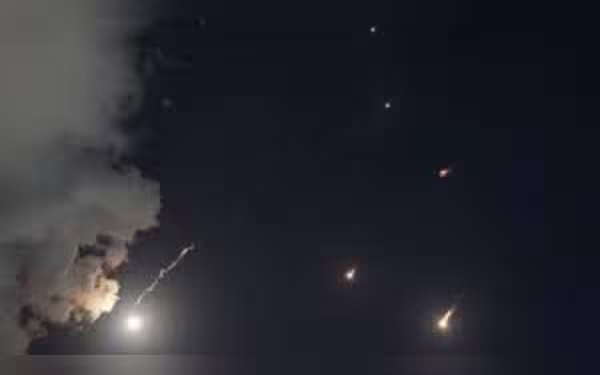Sunday, October 6, 2024 12:36 AM
Iran's Ballistic Missile Attack on Israel Escalates Tensions
- Iran launches ballistic missiles targeting Israel.
- Israel issues urgent safety guidelines amid missile threat.
- U.S. warns of severe consequences for Iranian aggression.
 Image Credits: thefrontierpost
Image Credits: thefrontierpostIran's missile strikes on Israel heighten tensions, prompting urgent safety measures and U.S. warnings of severe consequences.
The ongoing tensions in the Middle East have escalated dramatically as Iran has launched a series of ballistic missiles aimed at Israel. This alarming development comes in the wake of significant military actions and retaliatory strikes that have characterized the region's recent history. The situation has reached a boiling point, with both sides bracing for further conflict.
On Tuesday, the Israeli military confirmed that missiles were fired from Iran towards its territory. In response, Israel's home front command issued urgent life-saving guidelines to citizens across various regions. As alarms blared throughout the country, many Israelis rushed to bomb shelters, seeking safety from the impending threat. Reports indicated that explosions were heard in key areas, including Jerusalem and the Jordan River valley, highlighting the immediate danger posed by the missile strikes.
The Iranian military, specifically the Islamic Revolutionary Guard Corps (IRGC), stated that these attacks were a direct retaliation for the recent killings of prominent leaders, including Hamas leader Ismail Haniyeh and Hezbollah leader Hassan Nasrallah. The IRGC has made it clear that any Israeli retaliation would result in further attacks, escalating the already tense situation.
Adding to the complexity, a senior official from the United States has indicated that Iran is preparing for an imminent ballistic missile attack against Israel. The U.S. has expressed its commitment to supporting Israel's defensive measures, warning that any direct military action from Iran would have severe consequences. This statement underscores the precarious balance of power in the region and the potential for a wider conflict.
In the midst of these developments, Israeli Prime Minister Benjamin Netanyahu issued a stern warning to Iran, asserting that there is "nowhere in the Middle East Israel cannot reach." This statement reflects Israel's determination to respond decisively to any threats against its sovereignty. Meanwhile, the U.S. has been closely monitoring the situation, with Secretary of State Antony Blinken reaffirming America's commitment to Israel's defense.
The backdrop of this conflict includes a recent ground offensive launched by Israel in Lebanon, targeting Hezbollah, which has been involved in low-intensity strikes against Israeli forces. The ongoing hostilities have raised fears of a broader regional conflict, a scenario that both the U.S. and other global powers are keen to avoid.
As the situation unfolds, it is crucial for observers to understand the implications of these military actions. The potential for escalation remains high, and the international community is watching closely. The hope is that diplomatic efforts can prevail, preventing further violence and fostering a path towards peace in a region long plagued by conflict.
The recent missile strikes from Iran towards Israel mark a significant escalation in an already volatile situation. As both nations prepare for possible further confrontations, the need for dialogue and diplomatic solutions becomes ever more pressing. The world watches with bated breath, hoping for a resolution that can bring stability to the region.













